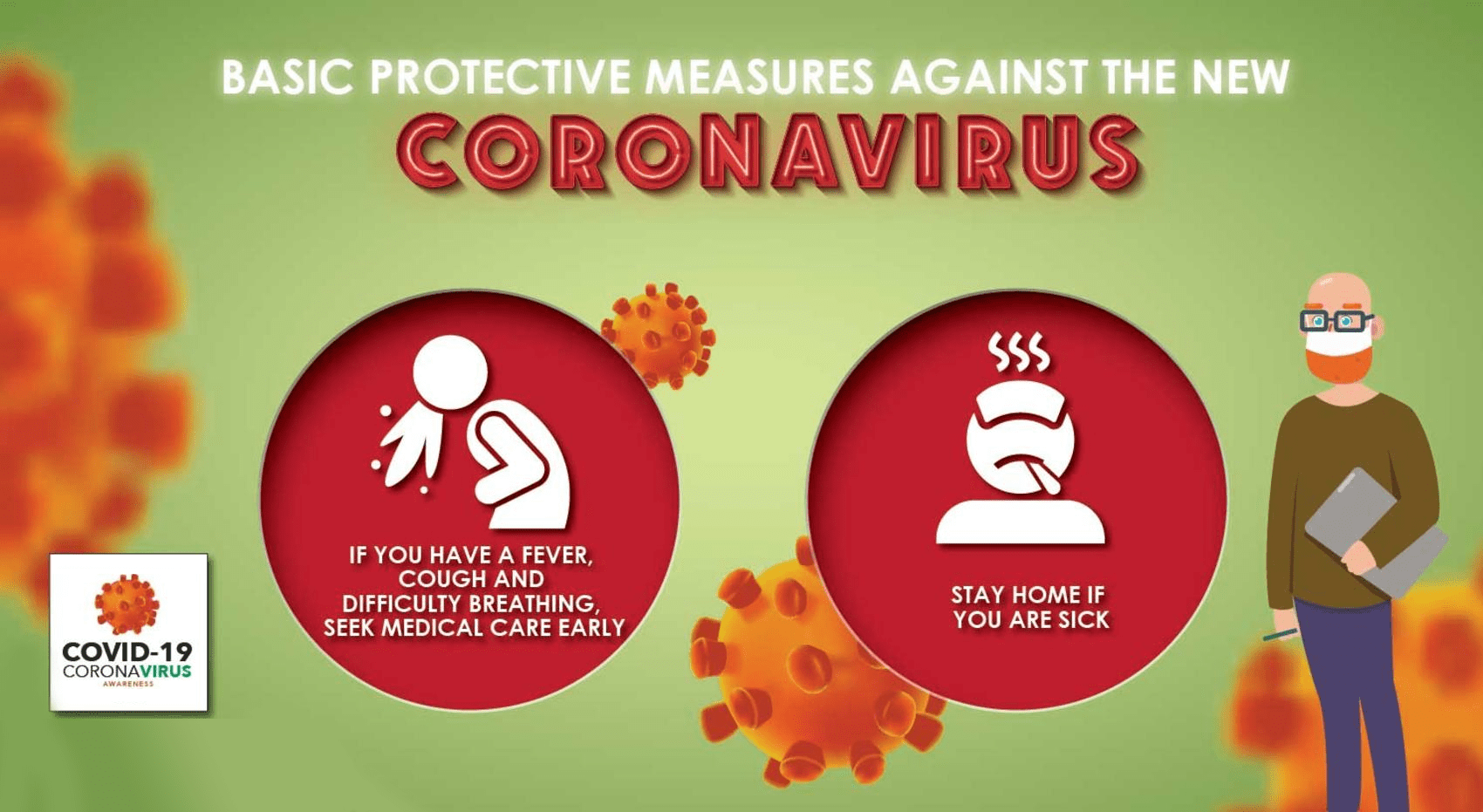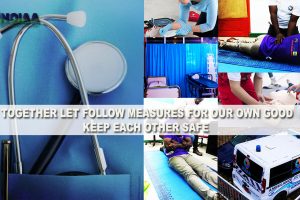Understand, Protect Yourself and Prepare for Coronavirus

The World Health Organization has declared the coronavirus a pandemic, and the number of cases continues to rise worldwide. These basic steps can help you reduce your risk of getting sick or infecting others.
First of all what is coronavirus and how does it work?
httpss://www.youtube.com/watch?v=5DGwOJXSxqg
Here’s what you can do:
The coronavirus continues to spread worldwide, with over 1,174,855 confirmed cases and at least 64,471 deaths. it becomes a fact that the world is facing a pandemic and each of us must act in the best of the world interest.
Coronavirus is spreading quickly. Olders, those with underlying health conditions and those without a social safety net are the most vulnerable to the infection and its societal disruption.
Though life as we know is going to be much affected, there are measures you can take.
Most important: Do not panic. With a clear head and some simple tips, you can help reduce your risk, prepare your family and do your part to protect others.
Stay home if you can.
Even if you have no underlying health conditions, and no symptoms, be extra cautious to protect other people
You can do your part to help your community and the world. Do not get close to other people.

This is called “social distancing” or “physical distancing,” and is basically a call to stand far away from other people. Experts believe the coronavirus travels through droplets, so limiting your exposure to other people is a good way to protect yourself.
Avoid public transportation when possible, limit nonessential travel, work from home and skip social gatherings. Don’t go to crowded restaurants or busy gyms. You can go outside, as long as you avoid being in close contact with people.
[How to keep your distance: A guide to help you understand the right attitude]
That might be hard to follow, especially for those who can’t work from home. Also, if you’re young, your personal risk is most likely low. The majority of those who contract coronavirus do not become seriously ill, and it might just feel as if you have the flu. But not respecting this distancing is not only reckless, but will endanger those around you.
Stay informed.
Knowing what is accurate can protect you and your family
There’s a lot of information flying around, and knowing what is going on will go a long way toward protecting your family.
[Stay Informed: The World Health Organization is providing free advices on the crisis management.]
Unsure about wearing a mask? You aren’t alone.
Who should wear a mask:
- Those who are sick. WHO officials recommended those infected with the COVID-19 coronavirus to wear masks to prevent spreading it to someone else.
- Those who are home caregivers for those who are sick. People caring for the sick should wear masks to protect themselves and to prevent further transmission throughout a family unit. Mask wearing has become critical in these situations, thanks to lockdown, said Michael J. Ryan, Chief Executive Director of the WHO Health Emergencies Programme, since most of the new transmissions are happening at the family level. “In some senses,” he said, “the transmission has been taken off the streets and pushed back into the family unit.”
- Those who are frontline healthcare workers. Right now the people most at risk from this virus are frontline healthworkers who are exposed to the virus “every second of every day”, Ryan also said.
WHO officials were careful to say that the agency does not criticise countries who advise wearing masks. But at the same time, the agency was quick to stress that masks are commonly misused, and as a result, won’t offer the intended protections.
For instance, wearing a mask can provide a false sense of security, say experts, leading some to become less vigilant in more important hygiene measures, such as hand washing. Additionally, removing a mask so it no longer covers your nose, or touching the outside of the mask can make it less effective.
Key to remember, say WHO officials, is that coronavirus is spread by droplets and not airborne transmission. “The most likely person to become a case is someone who has been in significant contact of another case,” said Ryan.

Wash your hands. With soap. Then wash them again.
It is a must!
Wash your hands, wash your hands, wash your hands. That splash-under-water flick won’t cut it anymore.
A refresher: Wet your hands and scrub them with soap, taking care to get between your fingers and under your nails. Wash for at least 20 seconds (or about the time it takes to sing “Happy Birthday” twice), and dry. Make sure you get your thumbs, too. It is also recommends you avoid touching your eyes, nose and mouth with unwashed hands (tough one, we know).
Alcohol-based hand sanitizers, which should be rubbed in for about 20 seconds, can also work, but the gel must contain at least 60 percent alcohol.
Also, clean “high-touch” surfaces, like phones, tablets and handles. Apple recommends using 70 percent isopropyl alcohol, wiping gently. “Don’t use bleach,” the company said.
To disinfect any surface, it is recommends wearing disposable gloves and washing hands thoroughly immediately after removing the gloves. Most household disinfectants registered by the Environmental Protection Agency will work.

With children, keep calm, carry on and get the flu shot.
The good news is that cases in children have been very rare
Right now, there’s not much reason for parents to worry, the experts say; coronavirus cases in children have been very rare.
The flu vaccine is a must, as vaccinating children is good protection for older people. And take the same precautions you would during a normal flu season: Encourage frequent hand-washing, move away from people who appear sick and get the flu shot.
As with airplanes, it’s always best to make sure your metaphorical oxygen mask is on before helping others. When talking to your children about an outbreak, make sure that you first assess their knowledge of the virus and that you process your own anxiety. It’s important that you don’t dismiss their fears and that you speak to them at an age-appropriate level.
Be sure to be in communication with your child’s school, including about early dismissals or possible online instruction.
Communicating with your workplace about child-care concerns that you have is suggested as well.
Stock up on groceries, medicine and resources.
Preparation is the best way to protect your family and loved ones
Stock up on a 30-day supply of groceries, household supplies and prescriptions, just in case.
That doesn’t mean you’ll need to eat only beans and rice. Try having a varied range of shelf-stable and tasty foods.
If you take prescription medications, or are low on any over-the-counter essentials, go to the pharmacy sooner rather than later.
And, in no particular order, make sure you’re set with soap, toiletries, laundry detergent, toilet paper and diapers, if you have small children.

